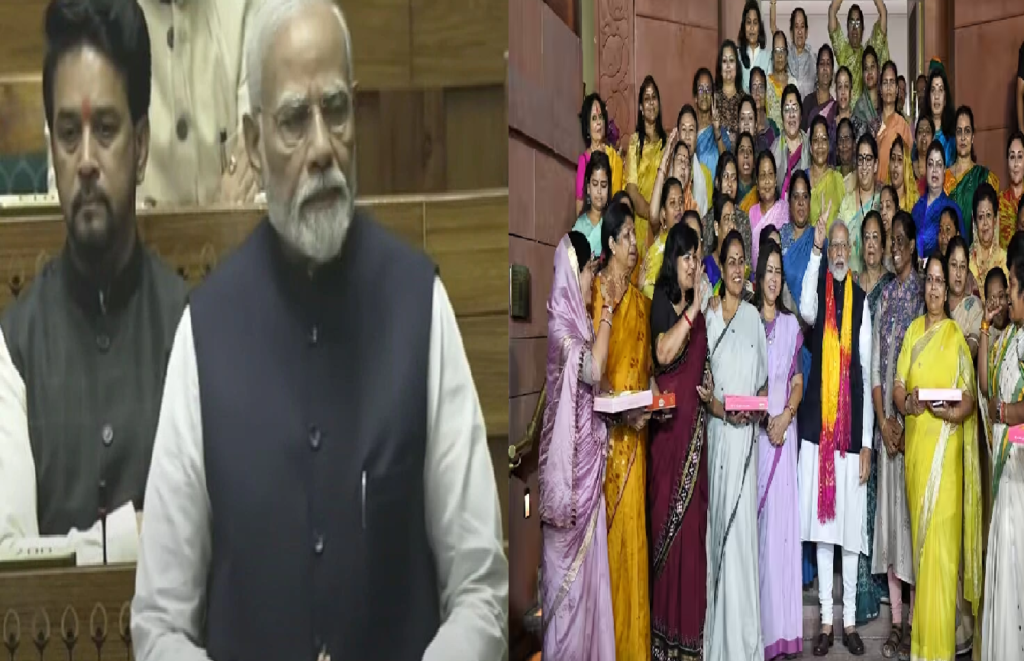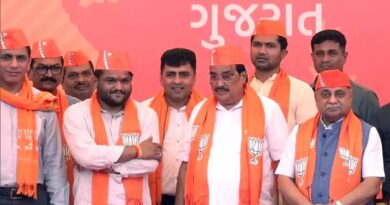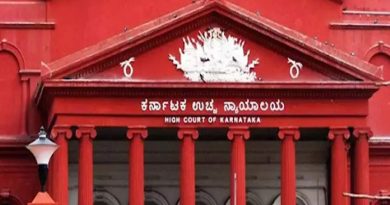Parliament’s Historic Approval: Women Reservation Bill Passes, PM Modi Expresses Gratitude
Parliament’s historic approval: Women reservation bill passes, PM Modi expresses gratitude.
The Nari Shakti Vandan Bill, providing 33% reservation for women in Parliament, gets approval.
PM Modi expresses thanks for the historic moment. Get details on the bill’s implementation and the opposition’s stance.
The dream of half the population will be fulfilled, Parliament’s approval of the Women Reservation Bill; PM Modi expressed gratitude to everyone
New Women Reservation Bill: The Nari Shakti Vandan Bill, which provides for 33 percent reservation for women in the Lok Sabha and Assemblies, was approved by the Parliament.
After the Lok Sabha on Wednesday, it was also passed by the Rajya Sabha on Thursday.
All 215 members present in the Rajya Sabha voted in favor of the bill, with no vote being cast against it. This is the first historic bill to be passed in the new building of Parliament.
Parliament’s historic approval: PM Modi expressed gratitude for passing the bill.
In his address before the voting, the Prime Minister thanked everyone for passing the bill.
The special thing was that Home Minister Amit Shah remained present in the Upper House during the entire discussion.
On the other hand, putting an end to speculations about the time taken to implement reservation, Finance Minister Nirmala Sitharaman made it clear that it can be implemented any time before 2029.
For this, we will just have to wait for the census data and delimitation.
What did Amit Shah say?
On Wednesday, Home Minister Amit Shah’s assurance in the Lok Sabha that the process of delimitation of seats and census would be started immediately after the 2024 Lok Sabha elections was expected to be implemented in the 2029 Lok Sabha.
Shah had made it clear that to maintain transparency in reserving seats for women, it is necessary to decide it on the basis of delimitation.
When will the bill come into effect?
The same question was being raised repeatedly by the opposition in both Houses as to when it would be implemented.
On Thursday, Finance Minister Nirmala Sitharaman made it clear that after the bill becomes law, it will be implemented after the first census and delimitation.
That means it can also be applicable in the assembly elections to be held before the 2029 Lok Sabha elections.
Finance Minister rejected demands for women’s reservation in Rajya Sabha.
Rejecting the demand made by some MPs for women’s reservation in Rajya Sabha too, Sitharaman made it clear that it cannot be implemented due to proportional representation and preference vote in the election of Rajya Sabha members.
Sitharaman also made it clear that the ban on the delimitation of Lok Sabha seats till 2026 imposed by the amendment in Article 82 of the Constitution in 2002 will not become an obstacle in the way of women’s reservation.
Government is working for the development of women: Finance Minister.
The Finance Minister also responded to the opposition’s allegations of delay in bringing the bill and said that the government is continuously working for the development of women.
Apart from various schemes, when the work of removing Article 370 was done in the second term, the welfare of women was also considered in it.
Congress has been against OBC: Meghwal.
From the opposition, most of the members including the Leader of Opposition repeatedly demanded the provision of reservation for OBC women.
In response, Law Minister Arjun Ram Meghwal reminded that Congress has been against OBCs.
When there was talk of forming the OBC Commission during the Modi era itself, there was opposition at that time also.




